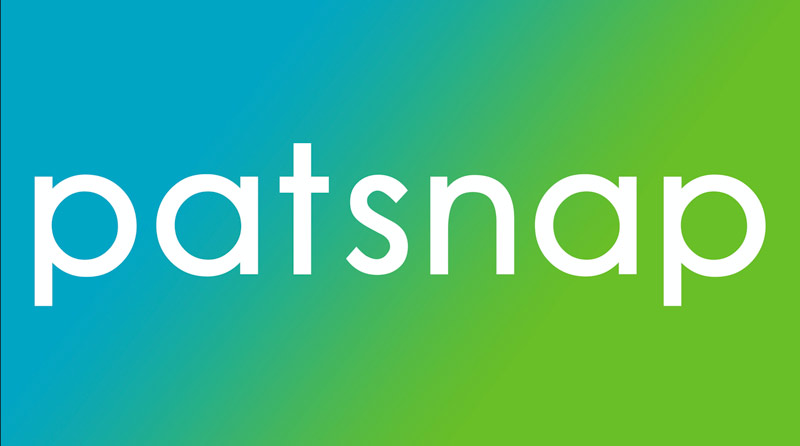Introduction
Effective intellectual property (IP) portfolio management is crucial for organizations operating in technology and innovation-driven industries. As the number of patents, trademarks, designs and copyrights grow globally each year, companies require specialized software to systematically track, analyze and protect their intellectual assets. In this blog, we analyze and compare 15 of the leading IP management platforms available today to help you choose the right solution.
Methods of Evaluation
To evaluate and rank the top IP management software, we considered various criteria like features and functionality, pricing and plans, customer reviews and ratings, partner ecosystem and integrations, popularity through metrics like traffic and backlinks. We also looked at how well each vendor leverages artificial intelligence and data analytics capabilities to power IP searching, competitive monitoring and strategy. The platforms are analyzed based on their ability to handle the entire IP lifecycle from ideation and filing to prosecution and renewals.
1. Clarivate IP Management Software
Clarivate IP Management Software is an intellectual property management solution developed by Clarivate, a global leader in providing trusted insights and analytics to customers throughout the innovation lifecycle. Leveraging their vast expertise in patents and analytics, Clarivate IP Management Software integrates seamlessly with other Clarivate solutions to provide customers a comprehensive IP management platform.
Pros: Some key advantages of Clarivate IP Management Software include:
– Leading provider of IP data and analytics for research and informed decision making
– Integrates seamlessly with other Clarivate solutions for a unified IP management experience
– Advanced AI-powered tools for searching, analyzing and monitoring patents to generate insights
Cons: A potential disadvantage is the software may be more suited for large enterprises or organizations with substantial IP portfolios due to the premium pricing compared to other competitors.
Pricing: Clarivate IP Management Software pricing is custom-tailored based on the specific needs and size of each organization. However, general pricing ranges from $5,000-50,000 per year depending on the selected modules and services.
Some key stats about Clarivate IP Management Software include:
– Used by over 50% of the top patent filers globally
– Access to the world’s largest collection of patent data with over 110 million patent documents
– Advanced AI and machine learning capabilities for analyzing patents
2. Rackspace Technology
Rackspace Technology offers a variety of intellectual property management software and services to help organizations centralize, track, and protect their intellectual property. Their modular IP services allow clients to store and organize patents, trademarks, copyrights, and other proprietary information on Rackspace’s hybrid cloud infrastructure.
Pros: Some key advantages of Rackspace Technology’s IP management services include: the ability to utilize their modular services on hybrid cloud infrastructure for flexibility, seamless integrations with popular IPM systems and databases for a unified view of your IP portfolio, and the expertise of their global network and consultants for deployment and ongoing customization.
Cons: A potential disadvantage is that Rackspace Technology’s IP services are provided through modular add-ons rather than a single, integrated IPM platform. This may introduce more complexity for organizations needing a unified system.
Pricing: Rackspace Technology does not publicly list pricing for their IP management services. Custom pricing is provided based on your specific infrastructure, integration, support, and customization needs. Contact a sales representative for a customized quote.
Some key facts about Rackspace Technology’s IP management offerings include: support for over 500 IPM system integrations and databases, a global network of data centers for redundancy and disaster recovery, and customized solutions tailored to your specific IP workflows and needs.
3. CAS
CAS is a global leader in scientific information solutions, with a mission to advance scientific research and innovation. Founded in 1907, CAS provides databases, tools and services to support research and innovation. CAS offers a variety of solutions for IP searching, patent monitoring, collection and analytics of competitive intelligence. Their solutions help professionals from both industry and academia to facilitate research and drive innovation.
Pros: Some key advantages of CAS solutions:
– Non-profit foundation dedicated to scientific discovery
– Deep databases spanning physical sciences, life sciences and engineering
– Specialized tools for IP searching, competitive intelligence and patent monitoring
– Support for research, innovation and IP management for both industry and academia
Cons: A potential disadvantage could be the cost for larger enterprise solutions which may be more than some competitors. However, CAS offers flexible plans and pricing tailored to organizations of different sizes and budgets.
Pricing: CAS offers a variety of plans and pricing models tailored to organizations of different types and sizes. Options range from individual subscriptions and academic pricing to enterprise solutions with custom quotes. There are also free trials and resources available to help evaluate solutions for specific needs.
Some key stats about CAS:
– Over 130 years of experience as a nonprofit scientific registry
– Databases covering chemistry, engineering, electronics and polymers
– Support for more than 100 million substances, sequences, proteins and other entities
– Tools and databases used by over 1 million scientists, engineers, patent professionals and institutions every year
4. PatSnap
PatSnap is an intellectual property (IP) management platform that uses artificial intelligence (AI) and natural language processing (NLP) to parse vast amounts of technical information from patents and scientific publications. Founded in 2005 and headquartered in Hong Kong, PatSnap aims to be the most comprehensive platform for searching and analyzing the world’s patent data.
Pros: Some key advantages of using PatSnap include:
– AI and NLP powered tools for extracting IP insights at scale from its massive databases
– Seamless integration of patents, publications and other data sources for comprehensive analysis
– Robust APIs for programmatic access to its IP data through custom solutions and integrations
Cons: A potential disadvantage is that a paid subscription is required to access the full features and datasets of PatSnap. The free version only allows searching of a limited number of results.
Pricing: Pricing for PatSnap starts at around $1,000/month for a basic plan and scales upwards depending on the number of users, datasets required, and additional features needed like advanced analytics and custom solutions.
Some key stats about PatSnap include:
– Over 100 million patents, publications, clinical trials, and other IP documents in its databases
– Processes over 1 million new patent documents per month
– Used by over 10,000 companies globally including 60% of the world’s largest chemical and energy firms
5. Quid
Quid is an AI-powered intellectual property management software. Founded in 2015, Quid uses generative AI and natural language processing to track intellectual property assets like patents, publications, trademarks and more across structured and unstructured data sources. The platform provides companies with customized insights to make strategic decisions and gain a competitive advantage.
Pros: Key advantages of the Quid platform include:
– AI-powered platform for IP and tech monitoring without the need for large analyst teams
– Automatically tracks news, patents, publications and other market signals to uncover insights
– Generates customized intelligence briefings and alerts on strategic issues, competitors and emerging trends
Cons: A potential disadvantage is that Quid requires paying subscription fees to access the full features and capabilities of the platform. The pricing may be higher than some other IP management solutions for some smaller companies and teams.
Pricing: Quid offers flexible pricing plans tailored for organizations of different sizes and needs. Pricing starts at $5,000/month for the basic Starter Plan and goes up to $15,000/month or more for larger Enterprise subscriptions with additional customization and support.
Some key stats about Quid include:
– Tracks data from over 100 million documents and sources daily
– Serves over 100 major corporations and government agencies
– Monitors over 150 technology domains and markets
– Generates hundreds of customized reports and briefings each month
6. Questel
Questel is a leader in intellectual property (IP) management software, providing tools to manage patents, trademarks, designs and copyrights. Founded in 1972, Questel helps organizations perform IP searches, analyses and monitor competitors. With global datasets and AI-powered tools, Questel aims to be the most comprehensive IP management platform on the market.
Pros: Key advantages of Questel’s IP management platform include:
– Leading provider of IP research and analytics tools
– Patent landscape analysis, monitoring and valuation capabilities
– State-of-the-art search across global IP datasets including patents, trademarks and market/competitive intelligence
Cons: One potential disadvantage is the upfront investment required compared to cheaper alternatives. However, Questel aims to provide significant ROI over time through improved IP decision making and strategy.
Pricing: Pricing for Questel depends on the selected modules, number of users and required support/training. Contact Questel sales for a customized quote.
Some key stats about Questel include:
– Over 45 years of experience in IP software and data
– Serving over 5,000 customers worldwide including top pharma/biotech and engineering firms
– Access to 200 million+ patent records, 110 million trademarks and intelligence on innovations
7. CPA Global
CPA Global, now operating as Clarivate, is a leading provider of intellectual property management software. For over 50 years, CPA Global has helped organizations gain valuable insights from patent and IP data to support strategic decision making. Their software integrates data from major global patent offices and applies artificial intelligence to help users monitor trends, identify opportunities, and manage intellectual property portfolios.
Pros: Some key advantages of CPA Global’s platform include:
– Leading provider of AI-powered patent research and monitoring tools
– Seamlessly integrates IP data from global patent offices into a single view
– Advanced analytics and reporting capabilities help users benchmark performance and identify areas for improvement
Cons: A potential disadvantage is the platform may have a higher learning curve and upfront costs compared to some other options due to its robust feature set and decades of refinement.
Pricing: Pricing for CPA Global’s intellectual property management platform varies based on team size and specific features/modules needed. Contact their sales team for a personalized quote.
Some key stats about CPA Global’s IP management platform include:
– Processes over 70 million patents and publications annually
– Integrates data from over 100 patent offices worldwide
– Over 15,000 customers in over 100 countries rely on their tools and data
CPA Global is now Clarivate – Clarivatecpaglobal.com
8. LexisNexis IP Solutions
LexisNexis IP Solutions offers powerful intellectual property management software to help organizations manage their IP portfolios. With access to multiple patent and trademark databases, the software helps users search, analyze, and manage intellectual property data all in one place.
Pros: Key advantages of LexisNexis IP Solutions include powerful search across multiple IP databases and sources, advanced analytics and competitive intelligence modules, and robust docketing and renewal management features.
Cons: A potential disadvantage is the higher pricing compared to some other IP management software options on the market.
Pricing: LexisNexis IP Solutions offers flexible pricing plans starting at $499 per user per month for basic search and docketing features. Advanced analytics and competitive intelligence modules require additional monthly or annual subscription fees.
Some key stats about LexisNexis IP Solutions include: access to over 110 million patent documents, over 180 million trademark records, and analytics modules covering over 1,500 technology categories. On average, customers see a 20% increase in productivity when using the docketing and renewal management features.
9. Anaqua
Anaqua is an intellectual property (IP) management software company founded in 1999 that provides a comprehensive SaaS platform to manage patents, trademarks, domains and other IP assets from invention to expiration. Their flagship product is AQX, a cloud-based software that aims to help companies generate more revenue from IP and reduce legal spending.
Pros: Some key advantages of Anaqua’s IP management platform include: end-to-end IP lifecycle management from a single system, powerful global search capabilities across IP databases, and advanced analytics and custom reporting tools to gain insights from IP portfolios.
Cons: One potential disadvantage is that as a full-featured platform aimed at large enterprises, it may have more features than needed for some smaller companies and startups with fewer IP assets to manage.
Pricing: Anaqua offers flexible pricing plans depending on number of users and IP assets under management. Pricing generally starts at $100 per user per month for smaller companies and scales with additional functionality, search credits, and support services required by larger companies with thousands of patents.
Some key stats about Anaqua’s platform include: It manages over one million IP assets for over 1,000 global customers, processes over $100 billion in patent asset value annually, and connects to over 80 online patent and trademark databases worldwide for searching and monitoring.
10. IPfolio
IPfolio is intellectual property (IP) portfolio management software developed by Clarivate. IPfolio allows IP professionals to centrally manage their patents, trademarks, designs and other IP assets in one secure platform. It offers extensive features tailored specifically for IP teams.
Pros: Some key advantages of IPfolio include:
– Extensive feature set tailored for IP professionals
– Easy to collaborate internally and with external partners/law firms
– Robust analytics and reporting on IP portfolios
Cons: A potential disadvantage is that as a fully-featured portfolio management system, it may have more features than needed for some smaller IP teams.
Pricing: IPfolio pricing is available on request. Pricing depends on the selected features, number of users, and support/license duration. It is offered on an annual subscription basis.
Some key stats about IPfolio include:
– Used by over 1000 IP professionals worldwide
– Supports over 20 different types of IP including patents, trademarks and designs
– Integrates with over 20 external systems like calendaring and docketing tools
– Available as an online SaaS platform with mobile apps
11. ProsperIP
ProsperIP is an intellectual property management software that helps organizations discover, protect, and monetize their IP assets. Founded in 2002, ProsperIP focuses on providing tools and services to develop strong IP strategies.
Pros: Some key advantages of ProsperIP include:
– AI-powered search and analytics tools for quick IP discovery and monitoring
– Seamless integrations with external IP sources like patent offices for a centralized view of IP data
– Focus on workflows for IP strategy development and monetization like licensing and valuation
Cons: A potential disadvantage is that the tool has a steeper learning curve compared to some other IP management solutions due to its advanced feature set.
Pricing: Pricing for ProsperIP is customized based on organization size and needs. Generally, plans start at $3,000/year for the basic package and go up to $15,000/year or more for the enterprise edition.
Some key stats about ProsperIP include:
– Over 800 customers worldwide including top universities, manufacturers, and tech companies
– Processes over 150,000 IP documents annually
– Integrates with over 40 external IP data sources
12. AppColl
AppColl is an intellectual property management software that helps organizations manage their IP portfolio from ideation through expiration. Founded in 2016, AppColl is a cloud native solution that offers IP lifecycle management, docketing, and financial management in one centralized platform.
Pros: Some key advantages of AppColl include:
– End-to-end IP lifecycle management from a single platform
– Highly customizable workflows to fit each organization’s unique needs
– Robust docketing and financial management tools to track costs and deadlines
– Integrations with other legal/finance systems for a unified experience
Cons: One potential disadvantage is that the customization requires some initial setup and configuration by AppColl or a partner firm to fully realize the flexible capabilities. This comes at a one-time cost.
Pricing: AppColl offers flexible pricing plans starting from $49/month for the basic Starter plan up to customized Enterprise plans for large corporate needs. Pricing is based on number of users, modules, and support required. All plans include integrations and security features.
Some key stats about AppColl include:
– Manages IP for over 500 customers worldwide across various industries
– Processes over 100,000 IP filings and renewals annually
– Integrates with over 150+ third party applications for a centralized workflow
13. Innography
Innography is an intellectual property management software developed by Clarivate. As an AI-driven competitive intelligence and analytics platform, Innography provides automated monitoring of patents, publications and trademarks. Its advanced mapping and visualization capabilities help analyze the IP landscape.
Pros: Some key advantages of Innography include:
– Advanced AI and machine learning delivers accurate and actionable competitive insights
– Automates routine monitoring tasks so users can focus on strategic analysis
– Advanced mapping and visualization capabilities provide a holistic view of the IP landscape
– Integrations with other Clarivate solutions like Derwent Innovation and Cortellis for end-to-end research support
Cons: A potential disadvantage is the pricing, as the software offers different tiers and additional charges for advanced features which may not suit all budgets.
Pricing: Innography offers different pricing tiers including Starter, Pro and Premier plans. Pricing depends on the number of users, datasets accessed and additional premium features. Contact Clarivate sales team for a customized quote.
Some key stats and capabilities of Innography include:
– Monitors over 125 million patents, publications, clinical trials and more from patent offices worldwide
– Automated monitoring and alerts on competitive intelligence based on customizable filters and rules
– Visualizes patent citation networks and geographic distribution on interactive maps and timelines
14. DocketTrak
DocketTrak is an intellectual property docketing and management software created for professionals who handle large patent and trademark dockets. Since 1999, DocketTrak has been the preferred solution of law firms, IP attorneys, and trademark agents for keeping critical intellectual property deadlines.
Pros: Key advantages of DocketTrak include:
– Specialized calendaring and reminding for IP prosecution deadlines
– Configurable workflows to match firm processes
– Advanced search, reporting, and analytics capabilities
– Team collaboration features for sharing workloads
Cons: One potential downside is that the software is focused entirely on intellectual property docketing needs which may limit its appeal for firms with diverse legal practices.
Pricing: Pricing starts at $60 per user per month for the Essentials plan with discounted rates for annual commitments. Additional customized pricing is available for enterprise needs.
Some key stats about DocketTrak include:
– Used by over 5,000 IP professionals worldwide
– Tracks dockets of all sizes from solo practitioners to IP departments with hundreds of matters
– Integrates with common practice management systems like Clio, ProLaw, and Litify
Conclusion
While all the platforms evaluated here are capable offerings, some stand out based on their comprehensive features, robust partner networks, pricing transparency and customer-centric approach. Clarivate, Anaqua, LexisNexis and Questel topped our list for their advanced AI/ML capabilities and ability to seamlessly integrate with other IP research tools, databases and management requirements. However, the best software depends on your unique IP needs, budget and organizational workflows. We hope this comprehensive evaluation helps you shortlist and choose the most suitable platform.












